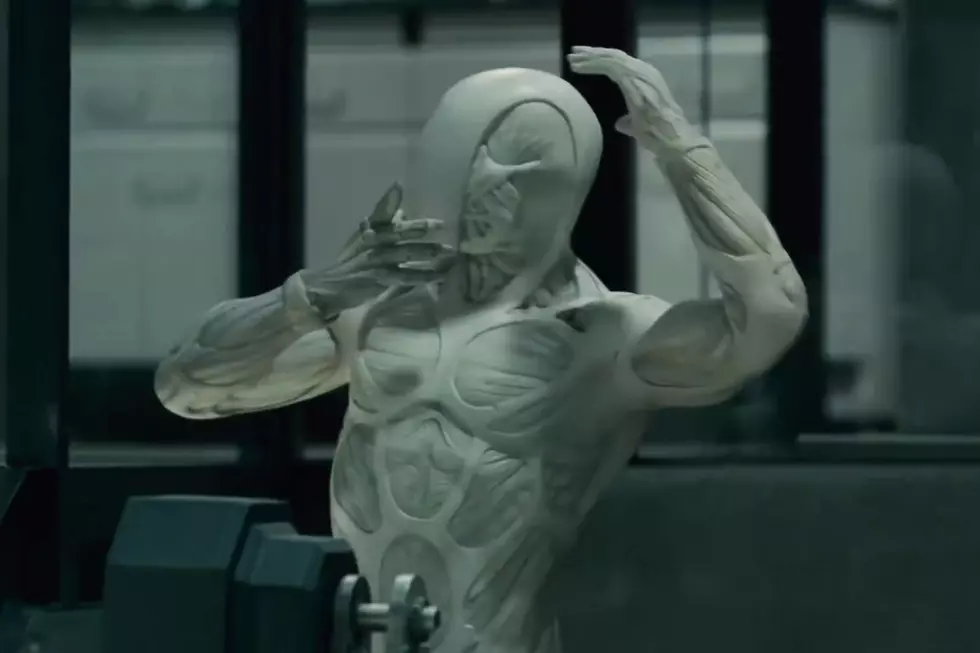
‘Kumiko, the Treasure Hunter’ Review
Kumiko is a lonely 29-year-old woman living in Tokyo who has fantasies of being a Spanish Conquistador. Increasingly pressured by her mother and her boss to find a husband and be a more successful woman, Kumiko finds escape in the Coen brothers' classic crime film 'Fargo,' and becomes obsessed with traveling to Minnesota to find the "treasure" Steve Buscemi's character left buried in the snow. 'Kumiko, the Treasure Hunter,' from Austin, Texas natives David and Nathan Zellner, is a charming, sad and existential contemplation on life film as escapism.
'Pacific Rim' star Rinko Kikuchi portrays Kumiko, a depressed woman on the verge of 30 who works as an office lady and deals with the dual pressures from her boss and mother, who voice the concerns of an imposing society struggling to evolve from its traditionalist ways: her mother insists she find a husband or move back home until she does so, and her demanding boss suggests she should take her mother's advice or consider furthering her career in the office industry. But Kumiko is perpetually regressing into a fantasy world of embroidered treasure maps, crafting a journey for herself using cinema as the ultimate escape.
In the opening dreamlike sequence (and we must assume it is a dream or a constructed delusion of sorts), Kumiko "discovers" a VHS copy of 'Fargo' and obsesses over the location of the briefcase full of money that Steve Buscemi's character leaves buried in the snow. We watch movies as a form of escapism, either hoping to relate or empathize in a way that distances us from our own reality, or hoping for a conduit to an alternate reality. For someone as distressed and emotionally exhausted as Kumiko, this line between reality and fantasy is blurred, and the natural cultural barrier that exists is exacerbated by her willful clinging to this fantasy of buried treasure, of a dream that will provide the ultimate escape from her miserable life.
Kumiko's idealization of Spanish Conquistadors functions as a way for her to realize her potential and prove her worth to those who impose their ideals upon her. If she can make this discovery and prove that she's right and it does exist, that she noticed something that no one else did, that she found something that no one else could, then she will prove she is better and smarter and more valuable than merely existing to get married or work in an office. If she can find this treasure, she will define her value for herself and choose her own destiny rather than have it chosen for her. With every stitch in her embroidered treasure maps, she crafts her own legend and fate.
Her journey to America is fraught with misunderstandings, thanks to her poor grasp of the English language, and the Zellners walk a fine line at times between capitalizing on humor at the expense of the language barrier and the genuine but tragic situational humor. Some of this is due to the film's score, which plays a bit too twee during the American half of the narrative. (Kudos, however, to the casting of Bunzo, Kumiko's pet bunny, which may be the most adorable rabbit to ever grace film.)
The final 20 minutes of the film spin into full-out emotional existentialism with surrealist qualities that are slightly discomforting. It's here that we begin to understand that all the charming music and humor and precious moments, like so much of life and how many of us use cinema as a comforting escape, are merely a soothing accompaniment, a salve to ease the pain, a distraction from the sadness, the spoonful of sugar to make the medicine go down. No matter how you embroider or embellish your sadness, though, that's still what it is. Kumiko disassociates herself from her problems and her depression and creates a journey to cope, but the truth is that there's nothing waiting for her at the end but herself -- not simply because 'Fargo' is fiction, but because she too has buried herself in the middle of some cold, distant nowhere far, far away.
'Kumiko, the Treasure Hunter' screened at the 2014 SXSW Film Festival.
More From ScreenCrush









